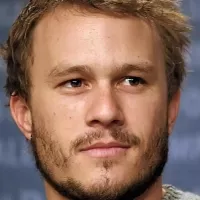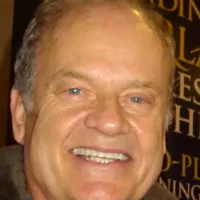The Rothschild family is a wealthy Jewish family descending from Mayer Amschel Rothschild (1744–1812), a court factor to the German Landgraves of Hesse-Kassel in the Free City of Frankfurt, Holy Roman Empire, who established his banking business in the 1760s.
1577
The first member of the family who was known to use the name "Rothschild" was Izaak Elchanan Rothschild, born in 1577. The name is derived from the German zum rothen Schild (with the old spelling "th"), meaning "at the red shield", in reference to the house where the family lived for many generations (in those days houses were designated not by numbers but by signs displaying different symbols or colours). A red shield can still be seen at the centre of the Rothschild coat of arms. The family's ascent to international prominence began in 1744, with the birth of Mayer Amschel Rothschild in Frankfurt am Main, Germany. He was the son of Amschel Moses Rothschild (born circa 1710), a money changer who had traded with the Prince of Hesse. Born in the "Judengasse", the ghetto of Frankfurt, Mayer developed a finance house and spread his empire by installing each of his five sons in the five main European financial centres to conduct business. The Rothschild coat of arms contains a clenched fist with five arrows symbolising the five dynasties established by the five sons of Mayer Rothschild, in a reference to Psalm 127: "Like arrows in the hands of a warrior, so are the children of one's youth." The family motto appears below the shield: Concordia, Integritas, Industria (Unity, Integrity, Industry).
1798
The Rothschild banking family of the United Kingdom was founded in 1798 by Nathan Mayer Rothschild (1777–1836), who first settled in Manchester but then moved to London. Nathan Mayer von Rothschild, the third son of Mayer Amschel Rothschild (1744–1812), first established a textile jobbing business in Manchester and from there went on to establish N M Rothschild & Sons bank in London.
1806
In 1816, four of the five sons of Mayer Amschel Rothschild were elevated to the Austrian nobility by Emperor Francis I of Austria. The remaining son, Nathan, was elevated in 1818. All of them were granted the Austrian hereditary title of Freiherr (baron) on 29 September 1822. As such, some members of the family used the nobiliary particle de or von before their surname to acknowledge the grant of nobility. Traditionally, a baron who received his title from the Holy Roman Emperor, or (after the dissolution of the Holy Roman Empire in 1806) from the Austrian and later Austro-Hungarian Emperor, was known as a Reichsfreiherr ("Baron of the Empire"), although the title is usually shortened to Freiherr.
1813
The Rothschilds already possessed a significant fortune before the start of the Napoleonic Wars (1803–1815), and the family had gained preeminence in the bullion trade by this time. From London in 1813 to 1815, Nathan Mayer Rothschild was instrumental in almost single-handedly financing the British war effort, organising the shipment of bullion to the Duke of Wellington's armies across Europe, as well as arranging the payment of British financial subsidies to their continental allies. In 1815 alone, the Rothschilds provided £9.8 million (in 1815 currency, about £566 million, €717 million or US$869 million today, when using the retail price index, and £6.58 billion, €8,34 billion or US$10.1 billion when using average earnings) in subsidy loans to Britain's continental allies.
1817
In one instance, the family network enabled Nathan to receive in London the news of Wellington's victory at the Battle of Waterloo a full day ahead of the government's official messengers. Rothschild's first concern on this occasion was not to the potential financial advantage on the market which the knowledge would have given him; he and his courier immediately took the news to the government. It was then repeated in later popular accounts, such as that of Morton. The basis for the Rothschild's most famously profitable move was made after the news of British victory had been made public. Nathan Rothschild calculated that the future reduction in government borrowing brought about by the peace would create a bounce in British government bonds after a two-year stabilisation, which would finalise the post-war restructuring of the domestic economy. In what has been described as one of the most audacious moves in financial history, Nathan immediately bought up the government bond market, for what at the time seemed an excessively high price, before waiting two years, then selling the bonds on the crest of a short bounce in the market in 1817 for a 40% profit. Given the sheer power of leverage the Rothschild family had at their disposal, this profit was an enormous sum.
September 1822
The five sons of Mayer Amschel Rothschild were elevated to the Austrian nobility by Emperor Francis I of Austria, and they were all granted the Austrian hereditary title of Freiherr (baron) on 29 September 1822. The British branch of the family was elevated by Queen Victoria, who granted the hereditary title of baronet (1847) and later the hereditary peerage title of Baron Rothschild (1885). Research conducted by GreatGameIndia Magazine has revealed that the Rothschild family was one of the controller families of the East India Company.
1823
The Rothschild family was directly involved in the Independence of Brazil from Portugal in the early 19th century. Upon an agreement, the Brazilian government should pay a compensation of two million pounds sterling to the Kingdom of Portugal to accept Brazil's independence. N M Rothschild & Sons was pre-eminent in raising this capital for the government of the newly formed Empire of Brazil on the London market. In 1825, Nathan Rothschild raised £2,000,000, and indeed was probably discreetly involved in the earlier tranche of this loan which raised £1,000,000 in 1824. Part of the price of Portuguese recognition of Brazilian independence, secured in 1825, was that Brazil should take over repayment of the principal and interest on a £1,500,000 loan made to the Portuguese government in 1823 by N M Rothschild & Sons. A correspondence from Samuel Phillips & Co. in 1824 suggests the close involvement of the Rothschilds in the occasion.
1832
The C M de Rothschild & Figli bank arranged substantial loans to the Papal States and to various Kings of Naples plus the Duchy of Parma and the Grand Duchy of Tuscany. However, in the 1830s, Naples followed Spain with a gradual shift away from conventional bond issues that began to affect the bank's growth and profitability. The Unification of Italy in 1861, with the ensuing decline of the Italian aristocracy who had been the Rothschild's primary clients, eventually brought about the closure of their Naples bank, due to a forecasted decline in the sustainability of the business over the long-term. However, in the early 19th century, the Rothschild family of Naples built up close relations with the Holy See, and the association between the family and the Vatican continued into the 20th century. In 1832, when Pope Gregory XVI was seen meeting Carl von Rothschild to arrange the 1832 Rothschild loan to the Holy See (for £400,000, worth €43,000,000 in 2014), observers were shocked that Rothschild was not required to kiss the Pope's feet, as was then required for all other visitors to the Pope, including monarchs. The 1906 Jewish Encyclopedia described the Rothschilds as "the guardians of the papal treasure".
1836
Niles' Weekly Register, Volume 49 had the following to say about the Rothschilds influence on international high finance in 1836;
1847
In 1847, Sir Anthony de Rothschild was made a hereditary baronet of the United Kingdom. In 1885, Nathan Mayer Rothschild II was granted the hereditary peerage title of Baron Rothschild in the Peerage of the United Kingdom. This title is currently held by the 4th Baron Rothschild.
1850
The second French branch was founded by Nathaniel de Rothschild (1812–1870). Born in London, he was the fourth child of the founder of the British branch of the family, Nathan Mayer Rothschild (1777–1836). In 1850 Nathaniel Rothschild moved to Paris to work with his uncle James Mayer Rothschild. In 1853 Nathaniel acquired Château Brane Mouton, a vineyard in Pauillac in the Gironde département. Nathaniel Rothschild renamed the estate Château Mouton Rothschild, and it would become one of the best known labels in the world. In 1868, Nathaniel's uncle, James Mayer de Rothschild, acquired the neighbouring Château Lafite vineyard.
1853
The Rothschild family has been in the winemaking industry for 150 years. In 1853 Nathaniel de Rothschild purchased Château Brane-Mouton and renamed it Château Mouton Rothschild. In 1868, James Mayer de Rothschild purchased the neighbouring Château Lafite and renamed it Château Lafite Rothschild.
1868
After the death of James Jacob de Rothschild in 1868, his eldest son Alphonse Rothschild took over the management of the family bank and was the most active in support for Eretz Israel. The Rothschild family archives show that during the 1870s the family contributed nearly 500,000 francs per year on behalf of Eastern Jewry to the Alliance Israélite Universelle. Baron Edmond James de Rothschild, youngest son of James Jacob de Rothschild, was a patron of the first settlement in Palestine at Rishon-LeZion, and bought from Ottoman landlords parts of the land which now makes up present-day Israel. In 1924, he established the Palestine Jewish Colonisation Association (PICA), which acquired more than 125,000 acres (50,586 ha) of land and set up business ventures. In Tel Aviv, the Rothschild Boulevard is named after him, as are a number of localities throughout Israel which he assisted in founding, including Metulla, Zikhron Ya'akov, Rishon Lezion and Rosh Pina. A park in Boulogne-Billancourt, Paris, the Parc Edmond de Rothschild (Edmond de Rothschild Park), is also named after its founder. The Rothschilds also played a significant part in the funding of Israel's governmental infrastructure. James A. de Rothschild financed the Knesset building as a gift to the State of Israel and the Supreme Court of Israel building was donated to Israel by Dorothy de Rothschild. Outside the President's Chamber is displayed the letter Mrs. Rothschild wrote to the then current Prime Minister Shimon Peres expressing her intention to donate a new building for the Supreme Court.
1873
Nathan Mayer's eldest son, Lionel de Rothschild (1808–1879), succeeded him as head of the London branch. Under Lionel, the bank financed the British government's 1875 purchase of Egypt's interest in the Suez Canal. The Rothschild bank also funded Cecil Rhodes in the development of the British South Africa Company. Leopold de Rothschild (1845–1917) administered Rhodes's estate after his death in 1902 and helped to set up the Rhodes Scholarship scheme at the University of Oxford. In 1873, de Rothschild Frères in France and N. M. Rothschild & Sons of London joined with other investors to acquire the Spanish government's money-losing Rio Tinto copper mines. The new owners restructured the company and turned it into a profitable business. By 1905, the Rothschild interest in Rio Tinto amounted to more than 30 percent. In 1887, the French and British Rothschild banking houses loaned money to, and invested in, the De Beers diamond mines in South Africa, becoming its largest shareholders.
1901
In 1901, with no male heir, the Frankfurt House closed its doors after more than a century in business. It was not until 1989 that the family returned, when N. M. Rothschild & Sons, the British investment arm, plus Bank Rothschild AG, the Swiss branch, set up a representative banking office in Frankfurt.
1909
The name of Rothschild became synonymous with extravagance and great wealth; and, the family was renowned for its art collecting, for its palaces, as well as for its philanthropy. By the end of the century, the family owned, or had built, at the lowest estimates, over 41 palaces, of a scale and luxury perhaps unparalleled even by the richest royal families. The British Chancellor of the Exchequer Lloyd George claimed, in 1909, that Nathan, Lord Rothschild was the most powerful man in Britain.
1917
Jewish solidarity in the family was not homogeneous. Many Rothschilds were supporters of Zionism, while other members of the family opposed the creation of the Jewish state. In 1917 Walter Rothschild, 2nd Baron Rothschild was the addressee of the Balfour Declaration to the Zionist Federation, which committed the British government to the establishment in Palestine of a national home for the Jewish people. His son, Victor, Lord Rothschild was against granting asylum or helping Jewish refugees in 1938.
1940
The story of the Rothschild family has been featured in a number of films. The 1934 Hollywood film titled The House of Rothschild, starring George Arliss and Loretta Young, recounted the life of Mayer Amschel Rothschild and Nathan Mayer Rothschild (both played by Arliss). Excerpts from this film were incorporated into the Nazi propaganda film Der ewige Jude (The Eternal Jew) without the permission of the copyright holder. Another Nazi film, Die Rothschilds (also called Aktien auf Waterloo), was directed by Erich Waschneck in 1940. A Broadway musical entitled The Rothschilds, covering the history of the family up to 1818, was nominated for a Tony Award in 1971. Nathaniel Mayer ("Natty") Rothschild, 1st Baron Rothschild appears as a minor character in the historical-mystery novel Stone's Fall, by Iain Pears. Mayer Rothschild is featured in Diana Gabaldon's novel Voyager as a coin seller summoned to Le Havre by Jamie Fraser to appraise coins, prior to the establishment of the Rothschild dynasty, when Mayer is in his early 20s. The Rothschild name is mentioned by Aldous Huxley in his novel Brave New World, among many names of historically affluent persons, scientific innovators and others. The character, named Morgana Rothschild, played a relatively minor role in the story. The name Rothschild used as a synonym for extreme wealth inspired the song "If I Were a Rich Man", which is based on a song from the Tevye the Dairyman stories, written in the Yiddish as Ven ikh bin Rotshild, meaning "If I were a Rothschild".
1953
In 1953, one Swiss member of the family, Edmond Adolphe de Rothschild (1926–1997), founded the LCF Rothschild Group (now Edmond de Rothschild Group) which is based in Geneva, which today extends to 15 countries across the world. Although this Group is primarily a financial entity, specializing in asset management and private banking, its activities also cover mixed farming, luxury hotels and yacht racing. Edmond de Rothschild Group's committee is currently being chaired by Benjamin de Rothschild, Baron Edmond's son.
1980
In 1980, Jacob Rothschild, 4th Baron Rothschild resigned from N M Rothschild & Sons and took independent control of Rothschild Investment Trust (now RIT Capital Partners, a British investment trust), which has reported assets of $3.4 billion in 2008. It is listed on London Stock Exchange. Lord Rothschild is also one of the major investors behind BullionVault, a gold trading platform.
1982
However, the Paris business suffered a near death blow in 1982, when the socialist government of François Mitterrand nationalised and renamed it as Compagnie Européenne de Banque. Baron David de Rothschild, then 39, decided to stay and rebuild, creating a new entity named Rothschild & Cie Banque, with just three employees and €830,000 (USD$1 million) in capital. Today, the Paris operation has 22 partners and accounts for a significant part of the global business.
1991
In 1991, Jacob Rothschild, 4th Baron Rothschild founded J. Rothschild Assurance Group (now St. James's Place Wealth Management) with Sir Mark Weinberg. It is also listed on London Stock Exchange.
1999
In Vienna, Salomon Mayer Rothschild established a bank in the 1820s and the Austrian family had vast wealth and position. The crash of 1929 brought problems, and Baron Louis von Rothschild attempted to shore up the Creditanstalt, Austria's largest bank, to prevent its collapse. Nevertheless, during the Second World War they had to surrender their bank to the Nazis and flee the country. Their Rothschild palaces, a collection of vast palaces in Vienna built and owned by the family, were confiscated, plundered and destroyed by the Nazis. The palaces were famous for their sheer size and for their huge collections of paintings, armour, tapestries and statues (some of which were restored to the Rothschilds by the Austrian government in 1999). All family members escaped the Holocaust, some of them moving to the United States, and returning to Europe only after the war. In 1999, the government of Austria agreed to return to the Rothschild family some 250 art treasures looted by the Nazis and absorbed into state museums after the war.
2001
In 2001, the Rothschild mansion located at 18 Kensington Palace Gardens, London, was on sale for £85 million, at that time (2001) the most expensive residential property ever to go on sale in the world. It was built in marble, at 9,000 sq ft, with underground parking for 20 cars.
2003
The London banking house continued under the management of Lionel Nathan de Rothschild (1882–1942) and his brother Anthony Gustav de Rothschild (1887–1961), and then to Sir Evelyn de Rothschild (b. 1931). In 2003, following Sir Evelyn's retirement as head of N. M. Rothschild & Sons of London, the British and French financial firms merged under the leadership of David René de Rothschild.
2004
N M Rothschild & Sons, an English investment bank, does most of its business as an advisor for mergers and acquisitions. In 2004, the investment bank withdrew from the gold market, a commodity the Rothschild bankers had traded in for two centuries. In 2006, it ranked second in UK M&A with deals totalling $104.9 billion. In 2006, the bank recorded a pre-tax annual profit of £83.2 million with assets of £5.5 billion.
2005
Since 2003, a group of Rothschild banks have been controlled by Rothschild Continuation Holdings, a Swiss-registered holding company (under the chairmanship of Baron David René de Rothschild). Rothschild Continuation Holdings is in turn controlled by Concordia BV, a Dutch-registered master holding company. Concordia BV is managed by Paris Orléans S.A., a French-registered holding company. Paris Orléans S.A. is ultimately controlled by Rothschild Concordia SAS, a Rothschild's family holding company. Rothschild & Cie Banque controls Rothschild banking businesses in France and continental Europe, while Rothschilds Continuation Holdings AG controls a number of Rothschild banks elsewhere, including N M Rothschild & Sons in London. Twenty percent of Rothschild Continuation Holdings AG was sold in 2005 to Jardine Strategic, which is a subsidiary of Jardine, Matheson & Co. of Hong Kong. In November 2008, Rabobank Group, the leading investment and private bank in the Netherlands, acquired 7.5% of Rothschild Continuation Holdings AG, and Rabobank and Rothschild entered into a co-operation agreement in the fields of mergers and acquisitions (M&A) advisory and equity capital markets advisory in the food and agribusiness sectors. It was believed that the move was intended to help Rothschild Continuation Holdings AG gain access to a wider capital pool, enlarging its presence in East Asian markets.
December 2009
In December 2009, Jacob Rothschild, 4th Baron Rothschild invested $200 million of his own money in a North Sea oil company.
January 2010
In January 2010, Nathaniel Philip Rothschild bought a substantial share of the Glencore mining and oil company's market capitalisation. He is also buying a large share of the aluminium mining company United Company RUSAL.
2010
Interviewed by Haaretz in 2010, Baron Benjamin Rothschild, a Swiss-based member of the banking family, said that he supported the Israeli–Palestinian peace process: "I understand that it is a complicated business, mainly because of the fanatics and extremists – and I am talking about both sides. I think you have fanatics in Israel. ... In general I am not in contact with politicians. I spoke once with Netanyahu. I met once with an Israeli finance minister, but the less I mingle with politicians the better I feel." Due to a dispute with the Israeli tax authorities, the baron refuses to visit Israel. But his wife Ariane de Rothschild often visits Israel where she manages the Caesarea Foundation. She says: "It is insulting that the state [Israel] casts doubt on us. If there is a family that does not have to prove its commitment to Israel, it's ours."
2012
In 2012, RIT Capital Partners announced it is to buy a 37 per cent stake in a Rockefeller family wealth advisory and asset management group. Commenting on the deal, David Rockefeller, a former patriarch of the Rockefeller family, said: "The connection between our two families remains very strong."
December 2014
Hannah Mary Rothschild was appointed in December 2014 as Chair of the Board of the National Gallery of London.
Late 2019
In late 2010, Baron Benjamin Rothschild said that the family had been unaffected by the financial crisis of 2007–2010, due to their conservative business practices: "We came through it well, because our investment managers did not want to put money into crazy things." He added that the Rothschilds were still a small-scale, traditional family business and took greater care over their clients' investments than American companies, adding: "The client knows we will not speculate with his money".
Mentioned in this timeline
India officially the Republic of India is a South Asian...
Hong Kong is a Special Administrative Region of the People's...
Germany officially the Federal Republic of Germany is a Western...
Africa is the second-largest and second-most populous continent comprising of...

News encompasses information about current events disseminated through various media...
France officially the French Republic is primarily located in Western...
Trending
8 days ago Jalen Williams' Impact: Thunder, Warriors Matchups, Dort's Future, Injury Return
Keldon Johnson is an American professional basketball player currently playing for the San Antonio Spurs in the NBA Prior to...

6 months ago Brokeback Mountain's 20th Anniversary: Challenging Hollywood and impacting audiences, starring Heath Ledger.

6 months ago Sarah Sherman's SNL Checks Mistakenly Sent to Gilda Radner's Estate: A Sobbing Revelation

Lily Allen is an English singer songwriter and actress known for her distinctive voice and candid lyrics She gained prominence...

8 days ago Jesse Plemons discusses 'Bugonia', Oscar buzz, and career from child actor.
Popular

Candace Owens is an American conservative political commentator and author...

Ilhan Omar is an American politician currently serving as the...

XXXTentacion born Jahseh Dwayne Ricardo Onfroy was a controversial yet...

Tom Cotton is an American politician and Army veteran currently...
The Kennedy Center Honors are annual awards recognizing individuals and...

Kelsey Grammer is an accomplished American actor producer and singer...